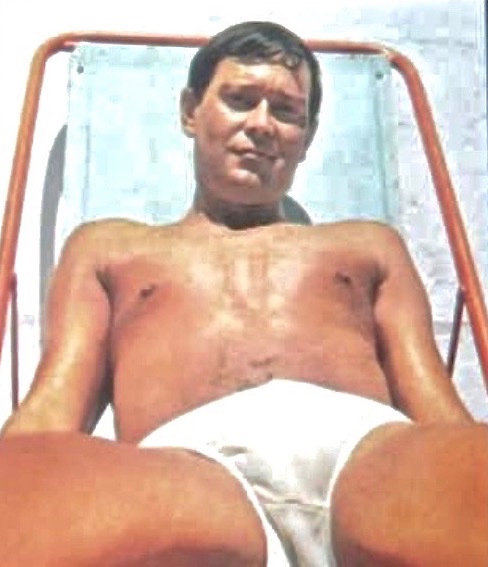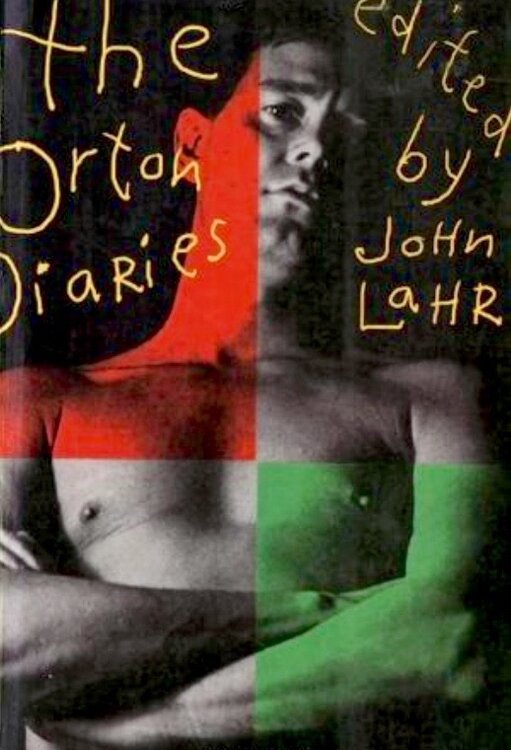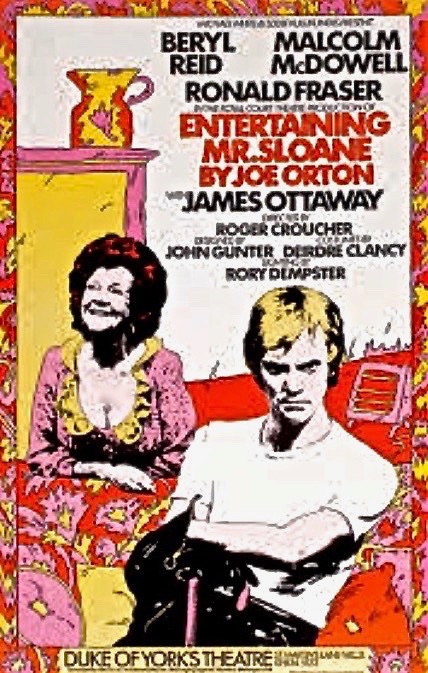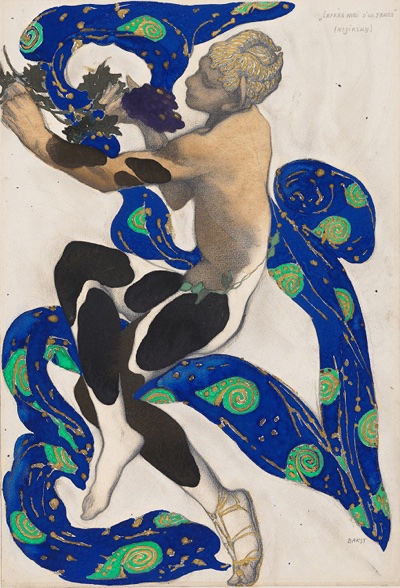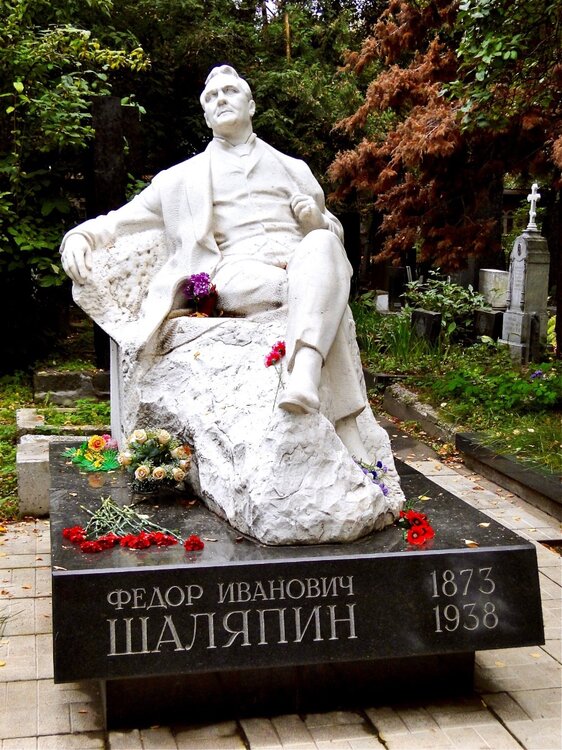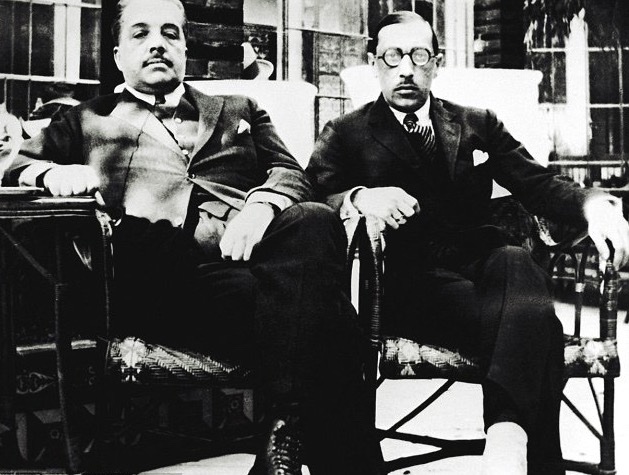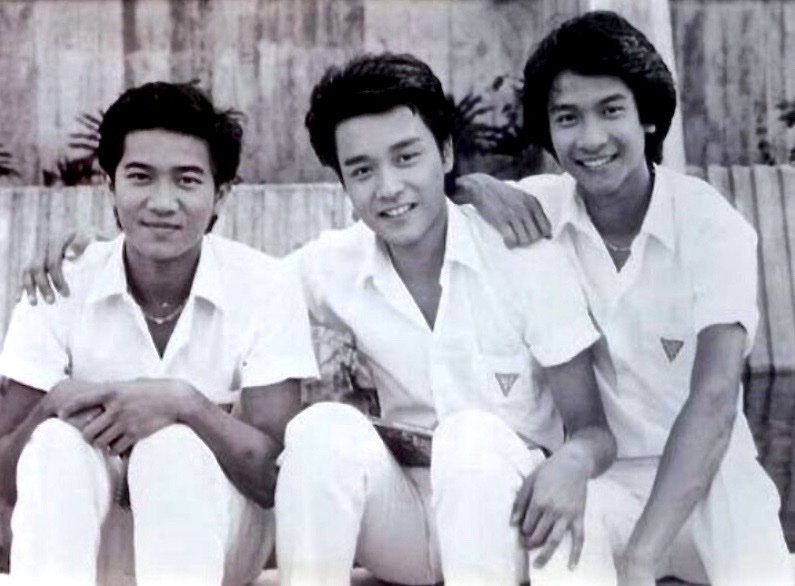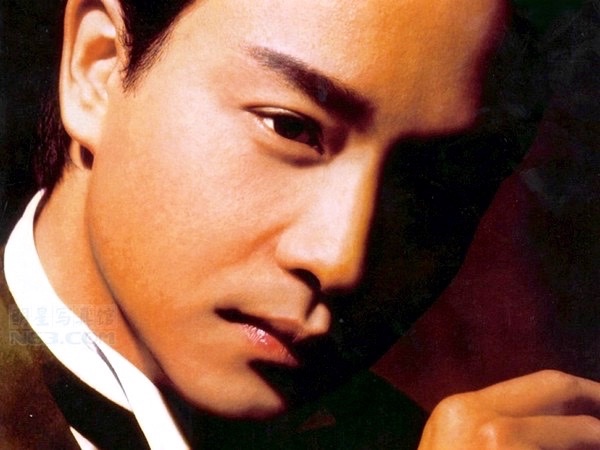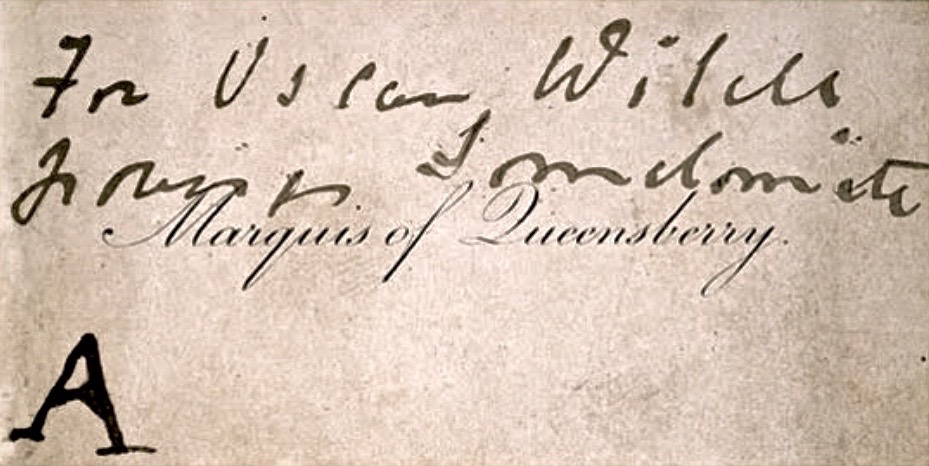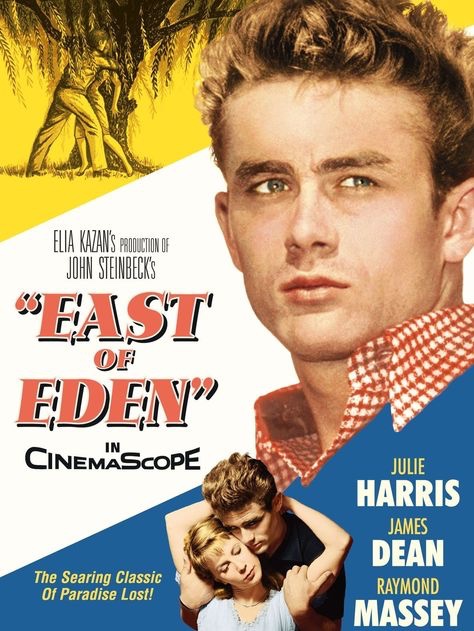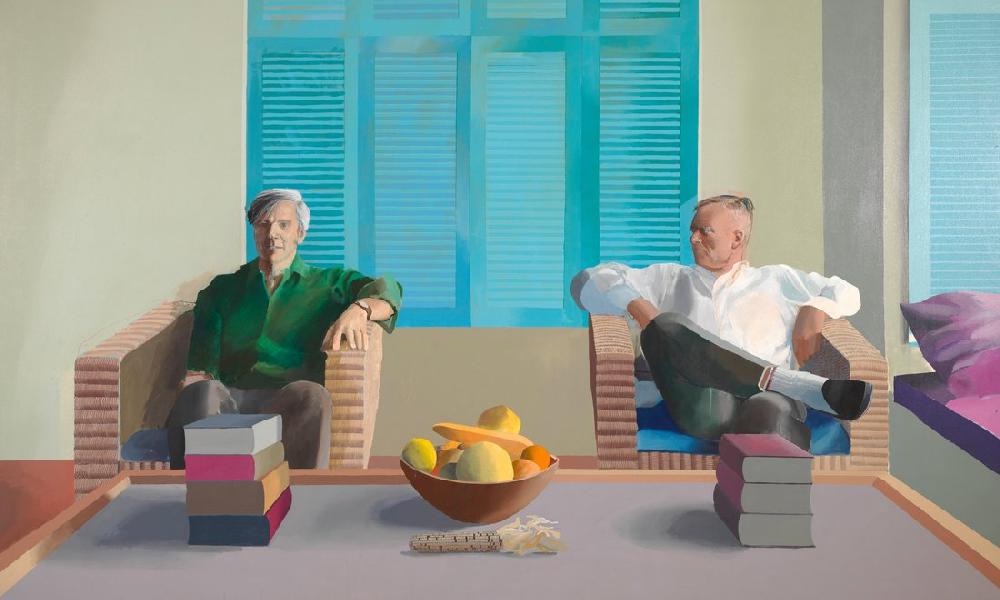
PeterRS
Members-
Posts
4,643 -
Joined
-
Last visited
-
Days Won
308
Content Type
Profiles
Forums
Events
Everything posted by PeterRS
-
British activist cleared in Thai pineapple defamation case Andy Hall
PeterRS replied to reader's topic in The Beer Bar
I am glad for Hall. Sadly it is indicative of the fact that fighting any case in a Thai court, however much in the right you are, you will be in for a very tough time - with no certainty whatever of the verdict. It reminds me a little of the famous 'Spice Trade' case back in 2004. Utopia Tours was a specialist gay travel agency which provided legitimate kosher gay tours in various Asian countries. It had excellent and knowledgeable guides. I know, I took two tours from the company - one to Phnom Penh and another to Luang Prabang. Although it had evening tours which took clients to gay bars and clubs, the guides themselves were not part of the deal. I am sure several members will remember the company. It was situated in the lobby of the Tarntawan Hotel. Utopia Tours was the name under which it traded. The officially registered name was Spice Trade Travel. This sordid case started on 19 March 2004 when police raided the Utopia Tours' office. Its officers were accused of promoting child prostitution which was a total lie. It never had anything to do with anything other than genuine travel agency services. The two directors and an employee were held in jail overnight. The next day, the three men were parked in front of the media and the evidence placed on a table in front of them. In this way, Thailand ensures that pubic opinion always assumes the accused have to be guilty, long before the wheels of justice have turned. That evidence consisted of a variety of gay magazines that had been found on a table in the office, the same magazines that used to be distributed free to many bars and restaurants in the country's major cities. None was pornographic in any way. Also on the table that morning were some videos and other magazines found at the home of one of the directors, John Scobie. Private material for home consumption and therefore not illegal! Before the media, the directors and the company were accused with the most lurid tales of child sex and sexual enslavement of children. Then the directors, Scobie and John Goss were official charged. If there was one unfortunate element in the case it was that for a few months years earlier Scobie, formerly Australia's Deputy Commissioner in Hanoi, had been on an official Australian Police watch list. There had been allegations that pornography had been sent using the diplomatic bag. This might have included child pornography. After an enquiry, no action had been taken. Scobie then went to work as Vietnam's Regional Manager for a major Australian company before moving to Bangkok to help found Spice Trade Travel. The Thais made great play over the fact that for months they had been cooperating with Australian authorities. After their long period of investigation, the Thai police had to eat crow and admit they had no case. But too many had lost face. So subsequently a second case was brought against the men, that of trading in and distributing pornography! This finally went before a judge (there are no juries in Thai courts) in November. The trial became a farce. At one point the judge ordered the media not to take notes! In his judgement, he stated he had found no evidence that Spice Trade Travel was involved in anything illegal. However - there is always a 'however' in Thailand - he believed the magazines on display were "inappropriate". Therefore the company was guilty. The media in attendance gasped in shock! Since then there have been a few other cases involving foreigners arrested on ridiculous charges, often made up or downright inaccurate. Some have been found guilty. A few have eventually had their cases thrown out by the court after many months. When this happens, it is never publicised. Again, too much loss of face for the Thai authorities, even though those who had been charged had suffered greatly during the whole nasty process. -
When police finally broke into the tiny, dirty bedsit apartment in North London, even the most hardened were nauseated by what they witnessed. Blood was everywhere. Lying on the bed was the body of the younger of the two men, his head cratered as a result of nine fierce blows from the hammer that lay on his chest. The bloodied naked corpse of the older man lay prostrate on the floor, dead from a massive overdose of barbiturates. The plot that soon unravelled is the stuff of murder mysteries. One of the two deceased was indeed a writer and a highly successful one at that. But mystery novels were far from his genre. Outrageously gay and totally promiscuous at a time when gay men had to remain very much in the closet, Joe Orton was one of the exceptions. Hailing from a cheap housing estate, Joe had left school early, later proudly telling friends, "I'm from the gutter." He knew he was gay and he did not care who else knew it. Rough trade was his delight and he'd cruise around London's public lavatories and red light districts, later filling volumes of diaries with details of each encounter. Then as the Swinging Sixties arrived, London was finally breaking free from the deprivations of the post-war era, a time when Britain came to lead the world in everything from London’s Carnaby Street fashion to the Beatles and the Rolling Stones. Were his diaries how Joe came to realise he had a talent for writing? Who knows? Eventually he found his way to the Royal Academy of Dramatic Art to study acting. There in 1951 he met a fellow student seven years older, a withdrawn prematurely balding man from a wealthier family named Kenneth Halliwell. No one seemed to like Halliwell much, whereas the impish, no-nonsense Joe was the life and soul of every gathering. What Joe saw in Halliwell apart from as a cash cow is equally mysterious. Perhaps it was simply that the adage 'opposites attract' was true in their case. Even so, the relationship did absolutely nothing to stop Joe's promiscuous behaviour. On leaving RADA, both tried their hands without much success at acting, writing and then doing various odd jobs. They even landed in jail for a few months after a prank when they defaced hundreds of public library books. Although Halliwell had helped Joe with his writing, in two important ways prison actually liberated Joe. First he realised he was no longer dependent on Halliwell. More importantly, as he was later to say, “It affected my attitude towards society. Before I had been vaguely conscious of something rotten somewhere, prison crystallised this. The old whore society really lifted up her skirts and the stench was pretty foul . . . Being in the nick [jail] brought detachment to my writing. I wasn’t involved any more. And suddenly it worked.” The iconoclast in him took over, poking fun at institutions and establishments that had been almost untouchable in British culture, like the police, the church and the government. Soon Joe's superior writing skills resulted in one of his plays being produced on BBC Radio. A modest success, he then embarked on what was to become his first major hit. "Entertaining Mr. Sloane" is very much a play of its time. Kath, a bored middle-aged spinster, runs a boarding house. One day a strikingly handsome blonde young man calls looking for a room. Kath fancies this Mr. Sloane. When her younger brother Ed arrives, he too fancies the stranger. But Sloane is a psychopath who goes on to murder their ailing father. When brother and sister find this out, they come to an agreement. In return for not reporting the crime, Sloane will spend a few months bedding Kath and then the next few months bedding Ed. “Sloane” transferred to Broadway, where the subject matter all but ensured it would bomb, and more successfully to various other countries. It was also made into a film after Orton’s death. This was black comedy with serious sexual overtones. Some were outraged. As Orton became more famous with his ensuing plays "Loot" and "What the Butler Saw", one Edna Welthorpe was a constant presence in the letters' columns of the major daily newspapers, writing about "the filth" and "moral disgrace" of Orton's plays. Welthorpe came across as a fierce guardian of public morals. Yet she was none other than Orton himself! Ever the prankster, he was merely engaging in a bit of self-promotion. He laughed all the way to the bank! One man who admired his work was Brian Epstein, the gay manager of The Beatles. Epstein was looking for a writer for the group’s third movie. At Epstein’s London house, Orton met Paul McCartney. During dinner McCartney told him he had loved “Loot” but generally did not like plays. “The only thing I get from the theatre is a sore arse,” he claimed. Orton noted that at one point there was a knock on the front door. “Five very young and pretty boys trooped in. I rather hoped it was the evening’s entertainment.” Sadly for Joe, they were a very popular Australian group recently arrived in London which Epstein was considering managing, The Easybeats. Orton agreed to work on the movie. Five weeks later he delivered the script. It was rejected. The group did not see themselves as Orton’s cross-dressing murderers. At least Orton received his £10,000 fee, a fortune in those days. As Orton's success grew worldwide, Halliwell's career went nowhere. Popping all manner of pills to keep depression at bay, he grew both intensely jealous of Joe's success and desperately afraid he would leave him. They took a long holiday in the very gay resort of Tangier bedding all the trade that came their way. Joe sunning himself in Tangier But it did nothing to allay Halliwell's fears. Joe soon told a journalist friend that he had started another relationship and would finally leave Kenneth. Did Kenneth find out? Perhaps. But his increasingly tormented mind could take no more. Within days he had bludgeoned Joe to death before committing suicide. It was August 1967. Joe was just 34 years old. Many regarded him as one of the brightest creative talents the theatre had ever known. Apart from his plays, Joe's life and success is perhaps best known today from the biography written after his death. In 1987 this was made into a film with Gary Oldman, Alfred Molina and Vanessa Redgrave. Appropriately both had the title, "Prick up Your Ears", ears being a very obvious anagram for "arse"! How Joe would have loved it!
-
Taiwan to quarantine all pilots of largest airline
PeterRS replied to reader's topic in Gay China, Taiwan, Hong Kong & Macau
I have been full of admiration for the way Taiwan has handled the pandemic. But the authorities sure did drop the ball big time on the matter of China Airlines pilots for it had a dress rehearsal around Christmas when an EVA airlines captain on a flight from New York was found to be positive AND had broken the short 3-day quarantine required for returning pilots. It was the first case on the island for about 8 months and resulted in a small new cluster. The pilot was fined US$10,000 and fired. Prior to Christmas, EVA had fired three other EVA pilots and four flight crew for breaking quarantine rules. SInce the start of the year, the quarantine period for all flight crew in Taiwan was extended to 7 days. Why the government did not institute mandatory testing and then immediately vaccinate all flight crews beats me! -
To be openly gay in the latter days of the Russian Empire was extremely risky. Its most celebrated composer Tchaikovsky, especially famous for his music to the ballets “Swan Lake”, “The Nutcracker” and “Sleeping Beauty”, had agonized whilst keeping his homosexuality private. His death in 1893 was officially due to cholera. Some researchers now believe he was forced to commit suicide after a threat of being ‘outed’ by a group of princeling students. He was just 53. One Russian had few concerns about keeping his gay life private. An avowed homosexual, he was destined to change forever the way the world looked at art and the performing arts. Born in 1872, Serge Diaghilev, son of a bankrupt vodka distiller, spent his early years near the Russian city of Perm. At the age of 18 he moved to the capital, St. Petersburg, where he soon managed to find himself part of an artistically-inclined gay clique. With these new friends, he would socialize, swap boyfriends and occasionally cruise for trade in the city’s parks. According to the composer Nicolas Nabokov, “he was perhaps the first grand homosexual who asserted himself and was accepted as such by society.” In the first decade of the 20th century, St. Petersburg was the place to be if you wanted to work in the classical arts. By 1906 Diaghilev was making a name for himself. He was asked to mount an exhibition of Russian art in Paris. Two years later he again visited Paris with a production of the opera “Boris Godunov” featuring the most famous bass voice of the age, Fyodor Chaliapin. The tombstone of Chaliapin in Moscow But it was ballet the French really wanted to see, for the Imperial Ballet of St. Petersburg was famed as the finest in the world. So in 1909 Diaghilev persuaded its best dancers to spend their summer holidays in Paris where he would mount a season performed under the title Les Ballets Russes. The season was a massive success. The exciting new choreography and bold new designs had a far more general appeal than to just the usual aristocratic ballet audience. As important was the astounding virtuosity of the lead dancers. Anna Pavlova (the Pavlova dessert of meringue, fruit and lashings of cream is named after her) was one of the prima ballerinas, but it was the astonishing lead male dancer who utterly electrified Paris. Everyone wanted to see the young, withdrawn and innocent star, Vaslav Nijinsky. Other than showing Paris his extraordinary leaps when he seemed suspended in the air and his supreme emotional involvement on stage, Diaghilev had another reason for wanting Nijinsky on this tour. The two had become lovers with Diaghilev holding an almost Svengali-like hold over his 20-year old protégé. Becoming a full member of the Imperial Ballet at the tender age of 17, Nijinsky quickly became a star. He also attracted the attention of the very rich playboy Prince Lvov. Lvov took the shy dancer under his wing – and into his bed – showering him and his family with gifts. Nijinsky was probably not at the time - and may never have been - homosexual. “I loved him because I knew he wished me well,” he is quoted as saying. “Well?” Perhaps, but Lvov was also a good friend of Diaghilev and had no hesitation in lending him Nijinsky for a night or two. Innocent though he might have been, the young dancer knew well that Diaghilev could further his career. So he left Lvov to live with Diaghilev. Diaghilev with composer Igor Stravinsky So successful was that season of Les Ballet Russes that the ensemble was to continue to appear in Paris before and after World War 1, soon becoming a full-time company. The scope of Diaghilev’s achievement was enormous. Composers like Stravinsky, Debussy and Prokofiev, artists like Picasso, Kandinsky and Matisse, and fashion designer Coco Chanel were engaged to create works that were becoming increasingly more avant-garde. And then there were the scandals! Nijinsky wanted more artistic freedom. Diaghilev let him choreograph a work to the music of Claude Debussy. In “L’après-midi d’un faune”, Nijinsky caused a sensation when he appeared to be slowly masturbating with a scarf prior to a brief orgasmic shudder. But the outcry that followed was nothing compared to the riot which took place during the first night of Nijinsky’s choreography for Stravinsky’s brutal, pagan-like “Rite of Spring” which ends with a human sacrifice. Paris was in uproar. No one was more pleased than Diaghilev. “Exactly what I wanted,” he exclaimed! Painting of Nijinsky with the famous scarf Diaghilev had a premonition he would die at sea. So when the company travelled to South America in 1913, he did not go. Unknown to him, one of the company’s aspiring students had her eye on Nijinsky. She made sure they became close on the long sea voyage and then arranged their marriage in Buenos Aires. On learning the news Diaghilev was incensed! He immediately fired his lover. What did he care? There were plenty more young men in the company and he was to be involved in affairs with several of them. For Nijinsky it was a total disaster. At his wife’s urging, on their return he attempted to run his own company – without success. Soon he started suffering from schizophrenia. Over the years the most famous dancer of all time was examined by many psychiatrists including Sigmund Freud. To no avail. After his last public performance aged just 27 he spent the rest of his life in an out of asylums. A typical impresario whose love of his work often exceeded his ability to finance it, Diaghilev continued to invite an ever-expanding group of young artists and composers to work with his company. By far his greatest legacy is that from the ranks of the Ballet Russes came the founders of London’s Royal Ballet and New York’s City Ballet. Another completely resurrected the near-moribund Paris Opera Ballet. All three are now amongst the world’s finest. Diaghilev himself died penniless in Venice aged 57. Although his career with the Ballet Russes had spanned less than 25 years, in that time he had revolutionised the worlds of music, dance, theatre and the visual arts as no one else in history.
-
Today the gay community in much of the world has gained a freedom unthought of even half a century ago. Along with this liberation has come an understanding that gay icons are important, especially for younger gay boys and girls. Chatting with friends over dinner recently, the conversation drifted into two rather interesting directions. Who were the first gay icons, and why are there none in Asia? As for the first gay icon, was it perhaps Alexander the Great? Deeply in love with his childhood friend Hephaestion, the Greek philosopher Aristotle described them as “one soul abiding in two bodies.” But the best known of the ancient figures to attract iconic status is surely St. Sebastian, the young, beautiful, near-naked youth, his body tied to a tree and pierced by arrows. Throughout history, hosts of artists have painted their ideals of his martyrdom. Gay film-maker Derek Jarman’s 1976 “Sebastiane” used him to examine the overlap between sexual and spiritual ecstasy. In the novel “Confessions of a Mask” by the gay right-wing Japanese Yukio Mishima who committed ritual seppuku in 1970, one character has his first ejaculation over a reproduction of St. Sebastian. As far as Asia is concerned, those in the west tend to forget there was a near thriving gay culture in many Asian countries long before the arrival of Arab traders and the missionaries who followed in the wake of western colonists desperate to convert souls for Christ. Going back in time, Chinese emperors not infrequently had concubines of both sexes. A tale often told concerns the tenth Han Dynasty Emperor Ai Ti (6 – 1 BC) who had numerous male lovers. Sharing his couch with his favourite Dong Xian, the young man fell asleep across the Emperor’s sleeve. Rather than wake him, the Emperor took his sword and simply cut off the royal sleeve. From then on, “cut sleeve” (黄九郎) became just one of many terms that appear throughout China’s literary history as a euphemism for homosexual love and devotion. Homosexuality was introduced to Japan by a bonze who had returned from China around 800 A.D. Thereafter many young boys entered into relationships with monks, a concept called nanshoku. The monks would look after the boys and teach them life skills, with sex as one of those skills. With samurai warriors being Buddhists, it became accepted that they, too, would take boys under their wing to teach them martial arts and other skills. Close by, homosexual activity was far from uncommmon at court during the the three main Korean Dynasties. During the Silla Dynasty, King Hyegong was known for his adventures with other men. One group of his elite warriors were the Hwarang or ‘Flower Boys’, so called because of their homoeroticism and femininity. During the later Koryŏ Dynasty, King Mokjong and King Gongmin are both on record as having several male lovers. When his wife died, Gongmin even went so far as to create a Ministry whose sole purpose was to seek out and recruit young men from all over the country to serve at his Court. His sexual partners were called “little brother attendants”! But as Asian countries have developed their own independent identities in the 20th century, a new gay culture has slowly re-emerged. As mentioned earlier, the novelist, playwright, essayist, actor and model Mishima has become a Japanese gay icon, albeit a controversial one due to his extreme right-wing views. Although married, he frequented gay bars and had several affairs with men. Another more recent is the adored Hong Kong singer and actor, Leslie Cheung. Handsome in the extreme and discovered in a singing competition, he was hugely successful as a silky-voiced singer, actor and songwriter. Unlike other movie stars, Leslie played several gay characters in Hong Kong movies, mirroring his secret life as a closet homosexual. He came to world attention in Chen Kaige’s 1993 movie “Farewell My Concubine” with a superb portrayal of a gay Chinese opera singer involved in a love triangle set against the violent political turmoils in 20th century China who ends up committing suicide. This gorgeous film won the Palme d’Or at Cannes and was nominated for an Oscar in the Best Foreign Film category. By this time, Leslie was known as one of the Canto-pop “kings”, four Hong Kong singers who dominated record sales around Asia for over a decade. In 1997 he starred in another major movie, “Happy Together”. This was a dark, grim tale of two 30ish gay Hong Kong lovers who decide to travel to Argentina’s Iguazu Falls on a tiny budget in an attempt to reignite their relationship. It does not work. Both end up seeking other sexual encounters. Throughout, the entire movie themes of loneliness and emotional pain are intertwined in a recurring cycle of mutual abuse and dependence. “Happy Together” gained worldwide acclaim, including another Palme d’Or for its director Wong Kar-wai and a third Best Actor nomination for Leslie. As a singer, in 1989 Leslie filled 10,000 seats in the Hong Kong Coliseum for an astonishing 33 consecutive nights. Eight years later at another series of concerts for which Jean-Paul Gaultier designed his costumes, he announced that he was gay and had had a banker lover for many years. It did nothing to upset his adoring female fans, although some of the guys were disappointed! Not known then was that despite his legendary fame in Asia and his growing fame around the world, Leslie suffered from severe clinical depression. On April 1st 2003 his manager was waiting for a meeting in the mezzanine lounge in Hong Kong’s Mandarin-Oriental Hotel. Unknown to her, Leslie was already in the hotel having a coffee on the 24th floor. Phoning to check why he was so late, she later claimed his last words to her were “I’ll be down in a moment!” He then jumped to his death. He was just 46 years old. Millions of hearts around Asia and in Chinese communities around the world were broken. Can you imagine three cuter young Hong Kong guys? Actors Danny Chan, Leslie Cheung and Paul Chung in the 1981 Hong Kong movie “On Trial”. Danny and Leslie were closet gays at the time. All died tragically young. Danny of a drug overdose aged 35. Paul like Leslie committed suicide aged 30. Leslie left a short note thanking his family, his lover and his psychiatrist. He added, “I can’t stand it anymore . . . In my life I have done nothing bad. Why does it have to be like this?” His funeral was the largest Hong Kong had seen since the death of another movie icon, Bruce Lee, with many thousands flying in from all over Asia as well as North America and Australia. In a 2010 CNN poll Leslie was voted the Third Most Iconic Musician of all Time after Michael Jackson and The Beatles. Had he lived, he would be 65 on September 12.
-
He was a writer, a playright, an aesthete, bon vivant, dandy and absolute master of the pithy epigram. The title of this article is one. Even better known is, "I can resist everything except temptation!" He was also gay - although not initially so. For a time, he was the toast of London and its high society matrons and their rich friends. Eventually leaders of that society were to turn on him with a viciousness more suited to a violent criminal. He was disgraced, tried in a court of law, found guilty, imprisoned and died in exile. Oscar Fingal O'Flahertie Wills Wilde came into this world in Dublin in October 1854. After a stellar success at the universities in Dublin and Oxford, he moved to London. With his biting wit, flamboyant dress and glittering conversation, Wilde quickly became one of the best-known personalities of his day, much sought after at soirées given by the great and the good. Following a brilliantly successful lecture tour of the USA and some time in Paris, he married and had two sons. He spent some years writing essays and novels before turning his talents to the theatre where he enjoyed even greater success, especially with his last, "The Importance of Being Earnest", now considered his masterpiece. Even if you have not seen the play, almost certainly you will have seen this very short clip from the 1952 movie version with the incomparable Dame Edith Evans uttering arguably Wilde's most immortal line. The formidable Lady Bracknell has just been told that her ward’s paramour was not born in a hospital or even a bed. He was found in the lost luggage department at Worthing station in - Another of Wilde's epigrams ends, "A man cannot be too careful in the choice of his enemies." It was to prove prophetic. In 1886 aged 32 he was seduced quite deliberately by a 17-year old Canadian Robert Ross and they entered into an intense relationship. Their friendship was to last for the rest of Wilde's life, but five years later another young gay friend was to sow the seeds of his downfall. He was introduced to the dissolute, bored young Lord Alfred Douglas, known to his friends as Bosie. They started a relationship and soon Bosie was to become the love of his life. Through his connections, Bosie introduced Wilde to London's low life and the male brothels which he soon began to frequent. Bosie's father was the Marquis (sometimes spelled Marquess) of Queensberry, a man's man who had drawn up the Queensberry rules used in the sport of boxing. Well aware of Wilde's gay reputation, Queensberry was incensed on learning of his son’s relationship. Unable to find Wilde when trying to warn him never to see his son again, he left his name card at Wilde's club, adding "For Oscar Wilde, ponce and somdomite (sic)." Wilde should have let the matter pass, but proud and vain as he was, he sued Queensberry for libel. He lost. Within hours Queensberry counter-sued - and won. In court a succession of private detectives hired by Queensberry exposed all the detail of Wilde's promiscuity with young men and boys. Wilde was convicted of gross indecency and sentenced to two years hard labour. His place in society forever lost, on his release he moved to exile in France where he died in Paris aged 46, the faithful Robert Ross at his side. His remains were eventually interred in the Père Lachaise Cemetery. Here he was in the company of such luminaries as composers Chopin, Rossini ("Barber of Seville") and Bizet ("Carmen"), pop singer Jim Morrison of The Doors, authors Gertrude Stein and Marcel Proust, artists Seurat, Pissarro, Delacroix and Corot, and perhaps most appropriately of all, the Irish revolutionary William Lawless. Wilde may not have fomented revolution, but through his manners, his openness and his writing he came to present a complex problem for the establishment of the day. By failing to play by their rules, he ensured his own downfall. The establishment always won. Not that Queensberry was a paragon of virtue. He was an arrogant, unpopular brute of a man whom no-one liked. As an atheist, he refused to take the oath of allegiance to the Queen – he called it Christian tomfoolery – and so was not permitted to take his seat in parliament. He particularly disliked the Prime Minister, a fellow Scot, the 5th Earl of Rosebery. Rosebery was certainly bisexual if not homosexual and always surrounded himself with handsome young men. Queensberry called him a “snob queer”. For some years Rosebery’s circle had included as his Private Secretary Queensberry’s eldest son and heir, the Earl of Drumlanrig. Queensberry will certainly have been aware of the strong rumours of a homosexual affair between his son and Rosebery, and this may well have fed into his anger towards Wilde's relationship with his third son, Bosie. Then tragedy struck. Drumlanrig died with a single gunshot to the head, a suspected suicide. Soon Queensberry underwent a lengthy period of mental decline, a result of syphilis. He died after a stroke aged 55 a year before Wilde’s own death. In 2012, Wilde was in the first group to be inducted into Chicago's Legacy Walk, an outdoor public display which celebrates LGBT history and many of its personalities. In 2017 he was one of up to 50,000 homosexual men given a posthumous pardon by the British government under what has become known as the Alan Turing Law. It is surely another of Wilde's epigrams that is the most suitable epitaph for a man who is one of history's true gay icons: "There is only one thing in the world worse than being talked about, and that is not being talked about."
-
Well, we met two generations. I met William Shawcross at a media briefing in Hong Kong. We did not discuss his Cambodia book nor Kissinger, as I recall. But I think Kissinger can rightly be called both a warmonger and one who played the realpolitik game. For that is what it was. A game in which other countries and peoples were the pawns and vast numbers of human lives ended up being lost. Millions! For Kissinger, the game was American interests - and to hell with the consequences. He could easily have stopped the East Timor annexation had he merely told Suharto the US did not agree. But he told Suharto the US would not object. His only stipulation that it be done "fast". Realpolitik for Kissinger meant supporting dictators and the repression of democracy. I saw with my own eyes what that realpolitik resulted in in The Philippines under Marcos. It was a near total disaster. Ever since Mao, successive US administrations had been completely blinkered by the "Who Lost China?" mantra. From then on, every country was considered a communist target. If Roosevelt, Truman, Acheson, Dulles and their successors including Kissinger had only stopped to think about countries like Laos, Vietnam and Cambodia, had only looked closely at their own files, had only considered the desire of leaders like Ho Chi Minh for a national identity, not a communist state allied to Russia and China - after all Vietnam had fought alongside the US in World War II, Asia and the world would not have had to endure mass slaughter. Whatever good he actually achieved - and there was indeed some - I wish that the names of the dead could be carved on his mausoleum. A gravestone would be vastly too small.
-
Is he perhaps the youngest of all gay icons? Even today we don't really know if the moody, rebellious actor with whom so many disaffected, misunderstood, sexually confused teenagers around the world of the 1950s identified so closely was really gay. He could have been bisexual, or even - horror of horrors! - straight. Yet James Dean is now regarded as one of the great gay icons of all time. In his first two films, "East of Eden" and "Rebel Without A Cause", the angst-ridden, complex, outcast misfits he played sprang out from the screen and gripped audiences in a way no other young actor had achieved. During his short career, Dean's name was linked to a number of actresses, notably Pier Angeli who would write lovingly of her "affair" with "Jimmie" before she committed suicide at the age of 39. For a while they dated in California. Yet when he was on a visit to New York after completing “East of Eden”, she shocked the media by announcing her engagement to the singer Vic Damone. At the time, few had reason not to believe her story. Yet William Bast, who had been Dean’s roommate in Los Angeles and New York for five years and was Dean’s first biographer, believes the relationship with Angeli was a mere PR stunt. Doubts only began to appear some decades later when it was realized how strictly the Hollywood studio system controlled the public images of their stars. If it could keep the openly gay life of matinee idol Rock Hudson secret for decades, partly through sham affairs, a staged marriage and partly by insisting he was working too hard, it's surely easy to believe it would have little difficulty shaping a wholesome image for its rebellious younger star. Was he gay? Bast, who later came out of the closet, claims that he and Dean experimented sexually. In an article in Britain’s The Guardian he reminded readers that homosexuality then was so far off the suburban radar that someone like Jimmie could give off all kinds of gay visual clues without anyone realizing. When you look at the scenes in "Rebel Without A Cause" where he and the younger mid-teen, cherubic-faced Sal Mineo are together, many in the gay community now consider these could definitely be two gay young lovers, the more so as Mineo eventually came out as bisexual (in those days as good as saying he was homosexual). Mineo was murdered outside his home at age 37. Screen Test “Rebel Without a Cause” with James Dean, Sal Mineo and Natalie Wood Elia Kazan, the director of "East of Eden", noted in his autobiography that Dean could not possibly have had successful relationships with girls. After spending several months in close proximity to Dean, surely he would be more likely to know than some of the early hagiographers who were paid to tow the studio line? Five years ago the latest of a whole series of books that has placed ever more lurid so-called facts into the public domain was published. In "James Dean: Tomorrow Never Comes" the author alleges lurid sexual relationships with a host of well-known names, including Elizabeth Taylor, Rock Hudson and even the (closet gay) director of the FBI, J. Edgar Hoover! Inevitably, Dean's sexual escapades have been embellished as the years have passed and the growing worldwide gay community yearns for more gay icons. Who better than the fiery rebel James Dean whose good looks smoulder so passionately on the screen? Obviously much of what has been written is drivel; but as they say, can there be smoke without fire? Dean only starred in three feature films. On the basis of these alone, he deserves his place in the pantheon of great movie stars. Yet it was his untimely death at the age of just 24 that has resulted in his memory living on as more of a cult hero and icon. One of Dean's passions was cars and speed. Five weeks before "East of Eden" opened and just after "Giant" had wrapped, he was driving his new Porsche 550 Spyder at speed in California when it skidded head-on into a small truck. Dead was trapped in the wreckage and died within minutes. That untimely death certainly added to his legendary status, especially amongst millions of grieving teenagers - of whom a good proportion were no doubt themselves gay and, these being the 1950s, still in the closet. Of his sexuality, Dean himself went as far as to say, "No, I am not a homosexual," adding almost conspiratorially, "But I'm also not going to go through life with one hand tied behind my back." In the early 1950s and with studio executives breathing down his neck, that was I suspect as much as he could possibly say. Some have suggested that like many hot-blooded young men he enjoyed experimenting with sex. Not so the feminist author Germaine Greer who wrote in 2005, "Looking back over half a century . . . the one thing that now seems obvious is that the boy was as queer as a coot." Whatever the truth, Gay Times' Readers' Awards had no hesitation citing him as "the male gay icon of all time."
-
I suggest you read the first truly perceptive book to be written about the genocide in Cambodia - Sideshow: Kissinger, Nixon and the Destruction of Cambodia by William Shawcross. Shawcross is a journalist who spent much time in Cambodia. His father happened to be one of the judges at the Nuremberg Trials. Once you have done that, do some research about the Indonesian takeover of East Timor, the Pakistani invasion of what became Bangladesh and a host of other episodes in recent history involving the warmonger Kissinger. It so happens that Kissinger was in Jakarta giving his country's OK to the Indonesian action the day before it started. And surprise, surprise! He was also in Pakistan just the day before East Pakistan was invaded, again giving America's nod. Once you have taken that in, I suggest another book - The Trial of Henry Kissinger by Christopher Hitchens. That said, I think the subject matter in the OP disgraceful.
-
Gay Icons of the Past #2: "Berlin is Boys"
PeterRS replied to PeterRS's topic in Theater, Movies, Art and Literature
That is one of Hockney's A Bigger Splash series featuring memories of his then boyfriend Peter Schlesinger. 400 boys may seem so few today when it's easy to have sex several times a night (for those who are up to it!) But Christopher was only in Berlin for 4 years before he met Heinz. I imagine sex was thereafter between the lovers - at least mostly. Even so, 100 a year must have seemed like nirvana to gays everywhere in those days. This ia arguably the most famous of his Isherwood/Bachardy paintings. In their home in California, they had so many Hockney paintings they named one room Hockney Hall. -
Take the last six months. Thailand or parts of it has been on the point of opening, or opening Phuket, or not opening at all, or opening Phuket so that those who have quarantined there successfully can then travel to other parts of the country, then Phuket will not be opened, then quarantine will be reduced, then bars will be open, but then bars will be closed . . .Anyone who believes what the TAT and other authorities, even government departments, say is in some kind of cloud cuckoo land - that same part of the world where those making such predictions hang out.
-
"Good authors too who once knew better words Now only use four-letter words Writing prose. Anything goes." These lyrics from the opening of Cole Porter's gorgeous 1934 musical "Anything Goes" could well have been written with the writer and novelist Christopher Isherwood in mind. Although Porter and Isherwood may never have met, both were gay. While Porter married in part to mask his sexuality (the fact that his wife was rich no doubt also helped!) the English-born Isherwood was one of the 20th century's most openly gay men. Exposed to homosexuality at his boarding school in England, he had already met and become best friends with another famously gay Englishman, the poet W. H. Auden, with whom he occasionally shared his bed. When Auden moved to Berlin in 1928, Isherwood followed a few months later. The capital of the Weimar Republic had earned a thoroughly deserved reputation for sexual freedom and debauchery. The words of Cole Porter were never more true: sexually, in Berlin “anything goes”! As his lover of many decades, Don Bachardy, later made clear, "To Christopher, Berlin was boys!" (Isherwood did not meet Bachardy until 1953 on a beach in California when he was 49 and Bachardy 18 - they remained together until his death in 1986). Christopher revelled in Berlin's thriving gay scene. He was later to say he had had sex with at least 400 boys. In staid old England and indeed the United States to which he would emigrate in 1939, 400 must have seemed an outrageous number. Then in 1932 he met his first real love, a handsome 17-year old German named Heinz Neddermayer. But storm clouds in the form of the Nazi Party were on the horizon. In 1933 the pair escaped to England, but Neddermeyer could not obtain a long-term visa. After a second visit in 1934, they gave up trying and started four-years of wandering around Europe. The relationship had to end when Heinz was captured by the Gestapo in 1937 and interned in a concentration camp. Ever the wanderer, Christopher joined his old pal Auden on a trip to the Paris of the Orient, the very permissive Shanghai. They had a commission to write a book on Asia but it was Shanghai that fascinated Christopher the most. He wrote – “The tired or lustful businessman will find here everything to gratify his desires . . . if you want girls, or boys, you can have them, at all prices, in the bath houses and the brothels. If you want opium you can smoke it in the best company, served on a tray like afternoon tea.” When war broke out in Europe, Christopher moved to California. Here he wrote and worked on various movie scripts. He soon became one of the celebrated European émigré set, mixing regularly with the likes of Thomas Mann, Igor Stravinsky, Charlie Chaplin, Bertolt Brecht and Greta Garbo. As he left for the USA he had written a novel based partly on his experiences, "Goodbye to Berlin". In 1951 one of his friends persuaded the playwright John Van Druten to adapt the novel into a Broadway play, "I am a Camera". Eventually it was fashioned into the musical "Cabaret". With its haunting music, provocative story and lyrics, all set against the backdrop of emerging Nazi Germany, "Cabaret" became a huge Broadway hit. Soon the movie version was to make it into an even bigger worldwide sensation. Liza Minnelli instantly became one of the world's top stars (and a gay icon in her own right) and the first person ever to appear on the cover of TIME and Newsweek magazines in the same week (when Newsweek was still a print publication). In one scene, Minelli as Sally Bowles is confronted by her erstwhile very proper English lover about another man she has been seeing - Brian: "Oh! Fuck Maximilian!" Sally: "I already did!" Brian (sheepishly): "So did I!" Liza Minnelli and Joel Grey sing “Money” from the movie “Cabaret” Even for 1972 that exchange was close to pushing the limits of public acceptability! Isherwood continued to write and Bachardy became a noted painter. Their partnership had its ups and downs, especially when Bachardy started on a series of affairs. Yet the relationship survived. A frequent visitor to their home was the gay artist David Hockney and the couple feature in several of his paintings. In recent years Bachardy has overseen the publication of Christopher's voluminous diaries and the republication of his novels. Even if only his Berlin stories and "Cabaret" are to survive into the future, they will surely be a fitting tribute to Christopher Isherwood, one of the true gay icons of the last century.
-
Half a dozen years ago, I wrote a series of articles for an Australian gay blogsite featuring icons from gay history. Although they were all a great deal longer than the average post here, I thought it might be interesting in these times of enforced stay at home when we have lots of time to read to repeat some of them here. This morning I was flipping through youtube when I came across a 1970 Dick Cavett show with Noel Coward and his long-time best friends, the actors Lynne Fontaine and her husband Alfred Lunt. Although the programme takes a little time to warm up and Cavett appears overly in awe of Coward, it is a highly amusing episode with Coward showing his usual cutting and often self-deprecating wit. As time passes, many will either have forgotten about Coward and his achievements or not even be aware of them. Many gay men will not even be aware of his long gay affair with one of the most senior members of British aristocracy. So I thought I would start with Coward. In a 1999 article marking the 100th anniversary of the birth of Noël Coward, TIME magazine noted that “no other 20th century figure approached Coward’s creative breadth: playwright, actor, composer, lyricist, novelist, stage director, film producer, Vegas “entertainer”. Audiences adored Coward’s plays, his stage musicals, his wit and his often-cutting repartee. Between the two World Wars, Coward dominated the theatrical profession on both sides of the Atlantic as no one else has done before or since. As TIME added, he did so with “a combination of cheek and chic, pose and poise.” Some of his plays have stood the test of time but few are programmed today. Coward claims his favourite song was "Mad About the Boy" which he wrote for a 1932 revue. Although sung by a girl about her favourite film star, Coward wrote a second unpublished version to be sung by a boy with clear homosexual overtones. Perhaps, though, he is now best known for just one song: “Mad Dogs and Englishmen go out in the Midday Sun.” It was first performed in New York in 1931. A frequent visitor to Asia, according to his biographer Sheridan Morley, Coward wrote the song whilst driving from Hanoi to Saigon “without pen, paper or piano!” Yet behind his assured, high society mask, for much of his life Coward was a deeply unhappy man. TIME mentions that Coward was gay. He was also from a very middle-class background. Born in the suburbs of London, at 14 he became the protégé and almost certainly the lover of a society painter, Philip Streatfield. Although Streatfiled was to die a year later, Coward had by then been introduced widely into the high society of the times and quickly adopted its accent and manners. Entering his teens, Coward started work as a child actor. He had always been interested in the theatre and by age 20 he was writing his own plays. Soon he was to be a huge success in virtually all areas of society entertainment. It was at a performance of his musical revue “London Calling” in 1923 that he met one of his early and longest-lasting lovers. Prince George, Duke of Kent, was the fourth son of Britain’s King George V (and thus uncle to the present Queen). They began a clandestine affair. During the Roaring Twenties, the scandals surrounding the very bisexual, drug-taking Prince George were legendary. Even after his marriage, one commentator at the time noted, “He is not safe in a taxi with either sex.” The British Security Service once reported that George and Coward had been seen cavorting through the streets of London “dressed and made up as women!” Their on-going relationship was to last for two decades. Only death parted George from “dearest, darling Noël”. In 1942 George was killed in an air crash in Scotland. Coward wrote in his diary, “The thought that I shall never see him again is terribly painful.” In public Coward was a master of the one-line quip, often cutting and always trotted out spontaneously. One evening walking across London’s Leicester Square, a friend drew his attention to the huge advertising hoarding above the Odeon Cinema – Michael Redgrave and Dirk Bogarde in The Sea Shall Not Have Them Bemused, Coward turned to his friend and exclaimed, “I can’t think why ever not, dear boy. Everyone else has!” In the movie business, Redgrave was known to be bisexual and Bogarde homosexual, although neither came out during their lives. In another famous Coward quip. he was standing on a balcony overlooking the procession of carriages passing en route to the Coronation of Queen Elizabeth II. Beside him was his young nephew. In one carriage was a monstrously overweight woman. Noël’s nephew was curious. “Uncle Noël! Who is in that carriage?” “That, dear boy, is Queen Sālote of Tonga.” Pointing to her tiny slim Prime Minster sitting opposite, the nephew was equally curious. “And who is the little man with her?” “That, dear boy, is her lunch!” Given his enormous success in the years between the World Wars and the patriotic film he wrote as part of the national war effort “In Which We Serve”, it was assumed that Coward would be awarded a knighthood. He was not. Prime Minister Churchill and other top members of the government were aware of the relationship with Prince George and were anxious that it be totally covered up, to the extent that George’s letters to Coward were stolen from his London home – with Churchill’s approval. Apart from the scandal if the public were to hear of the affair, homosexual relations between two men were strictly illegal, and would remain so in England until 1967. Coward would finally be given a knighthood in 1970. Perhaps somewhat extraordinarily, George’s sister-in-law, the mother of Queen Elizabeth II, remained a lifelong friend. After the war, Coward started a relationship with a young actor, Graham Payne, who was to remain with him for the rest of his life. Soon Coward and Payne took a long lease on a house in Jamaica named Goldeneye, owned by Ian Fleming the creator of the James Bond novels. Later they built their own house on the island and it was here that Coward died in 1973. Thereafter Payne was frequently questioned about a relationship with Prince George. He refused to confirm any had taken place. Indeed throughout his life Coward had never openly revealed his sexuality. Coward’s contribution to his country is marked by a memorial stone in Poet’s Corner in Westminster Abbey and the re-naming in 2006 of one of London’s theatres as the Noël Coward Theatre.
-
How Would You Rescue The Oscars Ceremony?
PeterRS replied to PeterRS's topic in Theater, Movies, Art and Literature
Steven Soderbergh, who produced this year's Oscar TV show, has confirmed to the Los Angeles Times that the order of Best Actress, Best Actor and Best Picture was changed for two reasons. The anticipation that Chadwick Boseman would posthumously win Best Actor and that his widow's speech would make a perfect emotional ending. Second, speeches in previous years by Best Male and Female Actors were generally far more interesting that those of the producers of the Best Picture. Anthony Hopkins was in Wales and prepared to be present on video link despite its being around 4 am, but Soderbergh would not allow video links. Then Hopkins asked Olivia Coleman to accept the award in the London bubble should he win. That was also nixed by Soderbergh. Hence the totally dud ending like a fireworks show where none of the fireworks worked. I would have liked to hear Hopkins as he would have been vastly more interesting than the no acceptance speech given by Joaquin Phoenix and no winding up by the no host policy. It can be no surprise to Academy members that viewing figures in the USA were 58% down on last year. RIP Oscars. The Grim Reaper is on the horizon. https://www.latimes.com/entertainment-arts/movies/story/2021-05-04/steven-soderbergh-oscars-ending-chadwick-boseman-anthony-hopkins -
Lady Persephone loves to be tested, but as you will know from the books and the tv series Lady Persephone is always right!
-
Oh goodee! The bitching has started. Long may it continue. Bring it on ladies! Let's have fun. And talking of bitchiness, dear Lord Ozzy really ought to know that it is Bridgerton (as one which crosses a river - of filth, perhaps?) and not Brigerton.
-
Interest in moving out of Thailand takes Internet by storm
PeterRS replied to spoon's topic in Gay Thailand
With the UK having promised to take in up to 5.4 million British National Overseas passport holders from Hong Kong (a relic from 1997) with the offer of citizenship after about 5 years residency, good luck to any Thai wanting to relocate there! But that poll is surely more an expression of utter dissatisfaction over the way the pandemic has been handled and the general governance of the country. The elites will find a way of staying in power whatever happens. And they will still fail to find the Red Bull heir who murdered the traffic cop. If Interpol can find Carlos the Jackal and the Lord knows how many other from its "most wanted" list, its failure to find Vorayuth Yoovidhya is clearly a result of the Thai government deliberately not providing the information Interpol requires. It sucks, but TIT. -
Bill, Melinda Gates announce split after nearly 30 years together
PeterRS replied to TotallyOz's topic in The Beer Bar
I wonder who is leaving who and for what reason? The worrying point raised in at least one newspaper today is that Bill Gates has still not contributed most of what he promised to the Foundation. How much of that will end up in the divorce settlement? -
Lady Persephone Campariton of Nakedness (I didn't wear shoes today!)
-
Not too negative at all. I agree with 10tazione. But my friend is quite new to Thailand and he is quite desperate to find a boyfriend. He is slowly learning by experience.
-
Is anyone else concerned about mobile banking on their phones? I'm sure I'm too old fashioned but I want nothing to do with it.
-
I'm not sure I like those rooms compared to other similar class hotels. But as for opening another 5 star hotel, It already has very strong competition. In a couple of years or so it will have a lot more as the huge The One development on Rama 4 is scheduled to have five 5-star hotels.
-
One tip which I heard from a friend who has recently located to Thailand and uses the apps quite a lot. He likes the hook ups but really hopes to find a boyfriend. He chatted last week to a very nice looking 22 yo boy next door type allegedly from Udon who had moved to study in Bangkok. Soon they switched from the app to Line. After they chatted for one evening and then about 2 hours on the next day, the boy asked for money as he needed to pay for his studies at Ramkhamhaeng University and pay rent on his room. He asked nicely for 5,500 baht. My friend thought the amount not unreasonable but was not prepared to pay it. So he said he would give him 2,000 if they could meet first for coffee. The guy said he had to go home to Udon for 2 weeks and he needed the money before he left. He would happily meet with him on his return. He added he did not speak good English. The photos he posted (naked from just below the waist up and also of family gatherings) seemed genuine. He also sent a photo of his bankbook details page and gave his phone number. To my friend, all seemed genuine. He ended up sending the guy 4,000 in two installments. Then the boy said he could come back from Udon a couple of days early. Could he stay with my friend? My friend said no since they had still not met, whereupon the Line account was blocked. When my fried told me this tale and showed me the correspondence, I said the clues should have been his pics - near pure white skin. How many Udon boys are anything but reasonably dark? Then each time money was transferred, he wanted not just the sms message but also a photo of the transmission slip. With some banks (all?) these slips also show the balance left in the account. So had my friend not just thrown them away, the boy would have had a clue as to his financial status and whether it was worth milking him for more. Having a second account with a minimal balance always helps when it comes to in country transfers. My friend still thinks there is a chance he is genuine. I just told him never to send money to anyone until you have actually met and had a chance to size the guy up.
-
How Would You Rescue The Oscars Ceremony?
PeterRS replied to PeterRS's topic in Theater, Movies, Art and Literature
Agree on both counts. But overall I agree with the comment in a newspaper I normally do not read. Britain's Daily Telegraph described the show as "a broadcast that was at once bombastic and underwhelming, and which swung between unbearable grandiosity and giggling amateurishness."


